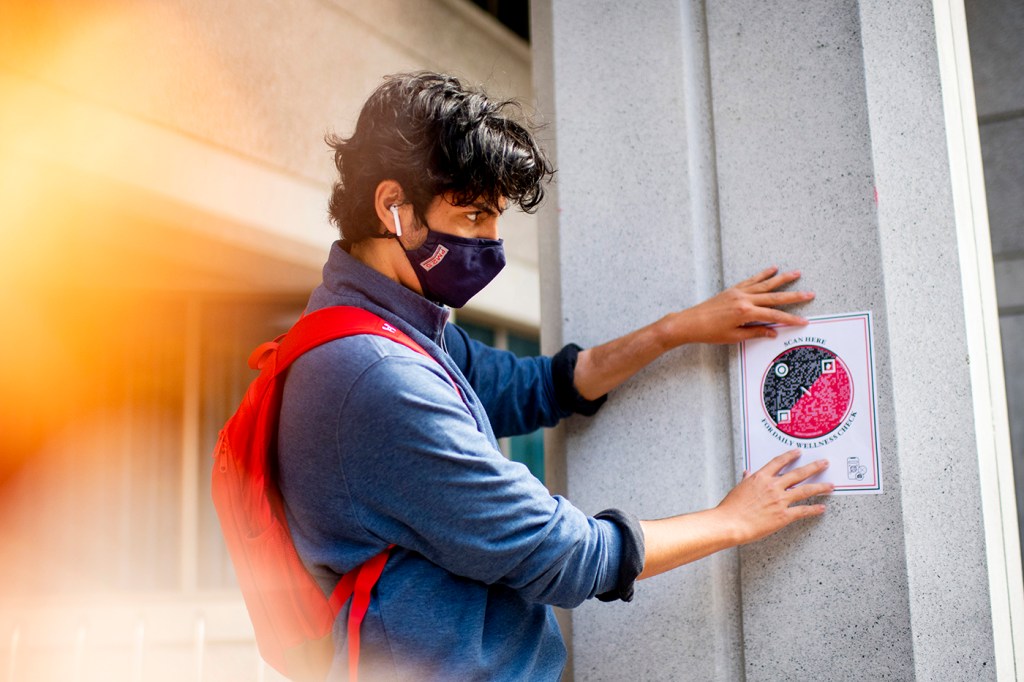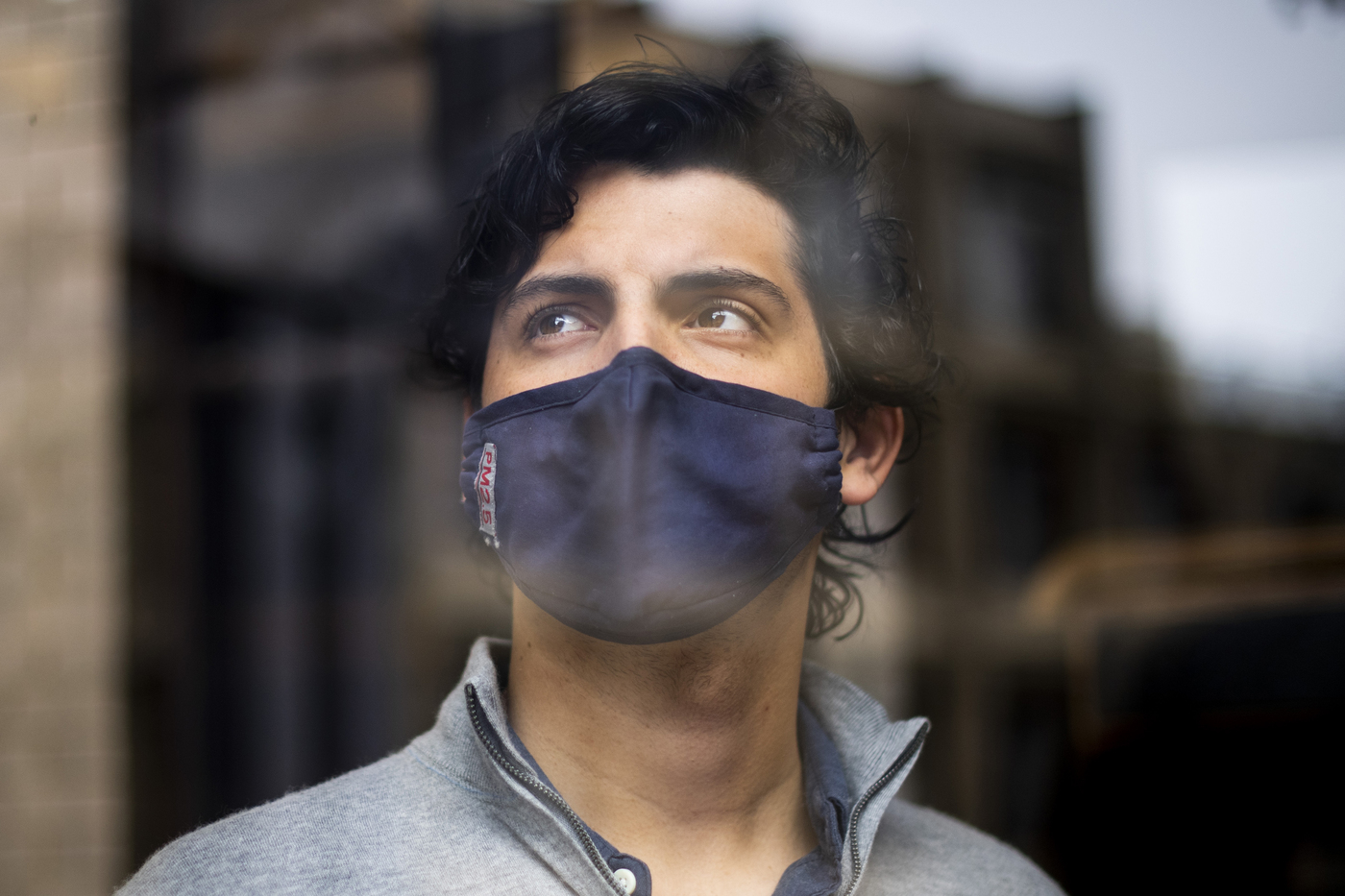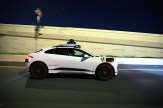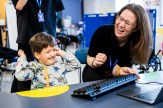This student has a plan for campus QR codes

Jack Armstrong likes to say “awesome” and “100 percent” when he’s excited about something.
Sitting outside of the Interdisciplinary Science and Engineering Complex on Northeastern’s Boston campus after class has just let out, the freshman and budding entrepreneur uses those phrases often as he describes his plans to put up quick response codes, known as QR codes, around campus to help connect people.
“It’s going to be awesome,” he says.
Armstrong has worked with the university’s marketing team on a couple of recent projects that he developed the codes for. They include tens of thousands of alumni postcards with a code in the bottom left corner that takes people directly to a landing page titled “Your Degree is the Key.” He has also developed the code for the signs placed around campus announcing the university’s Veterans Day celebration in November.
Armstrong, who is taking marketing interactive media classes, has a QR code on his Twitter page and on his dorm door in Stetson.

Jack Armstrong poses for a portrait outside Stetson East. “I love relationship capital and the feeling of connecting people,” he said. Photo by Matthew Modoono/Northeastern University
“My goal for this is to just engage the campus more, 100 percent,” he says.
There are already QR codes from third parties sprinkled around the Boston campus, directing people to do anything from ordering lunch to joining an online campus social group. Armstrong’s QR codes use an underlying technology known as flowcodes, developed by a company founded by Armstrong’s father. Flowcodes, the younger Armstrong argues, are a safer alternative and offer a richer multimedia experience.
Flowcodes aim to separate themselves from traditional QR codes by offering tailored branding opportunities and giving users access to the data they collect.
There’s a visual difference, too—QR codes are square while his flowcodes are round, and can be branded and colored in multiple ways.
Armstrong’s interest in entrepreneurship began a few summers ago when he was 16 years old and vacationing with his family. He and a cousin started a T-shirt business selling caps, hoodies, and shirts. The apparel cost less than $10 to make, but sold for $20 apiece.
Although they made money that summer, it was the experience of connecting with people that resonated most with him.
“We didn’t have an online store or a stand. We would spend hours carrying bags of merchandise up and down the beach, walking right up to people,” Armstrong says. “It was insane.”
The business came to an end when the summer did and it was time to return to high school. Armstrong got the idea for his next business, using QR codes, while interning at his father’s company in Manhattan.
The history of the squiggly patterns of black and white boxes—activated by a cellphone—originated in the 1990s, when Japanese car makers used them to track car parts. Today they’re everywhere. There’s even one for basketball superstar Lebron James’s Mii character and the Rolling Stones’ iconic red lips.
The pandemic sparked a light bulb moment for Armstrong.
After seeing his favorite Massachusetts restaurants struggling under distancing restrictions, he encouraged dozens of eateries on Nantucket last summer to use QR codes to bring up menus on diners’ phones, preventing people from having to touch printed menus.
The first to sign up was a seafood restaurant where a King Crab and shrimp entree sells for $62. Other dining establishments soon followed. It quickly became apparent to them how the codes could make things safer for customers, even as the coronavirus was forcing some businesses to close up shop, Armstrong says.
He turned a profit from his restaurant venture, but there was something even more rewarding.
“By the end of the summer, most of the dinners I had were either free or discounted because I gained strong relationships with these restaurants,” he says.
Relationships sit at the core of what Armstrong sees in his future as a businessman. Whether it’s T-shirts or QR codes, he values whatever opportunity comes his way to connect people.
That explains the passion behind his latest effort on the Boston campus.
“I love relationship capital and the feeling of connecting people,” he said. “100 percent.”
For media inquiries, please contact media@northeastern.edu.





